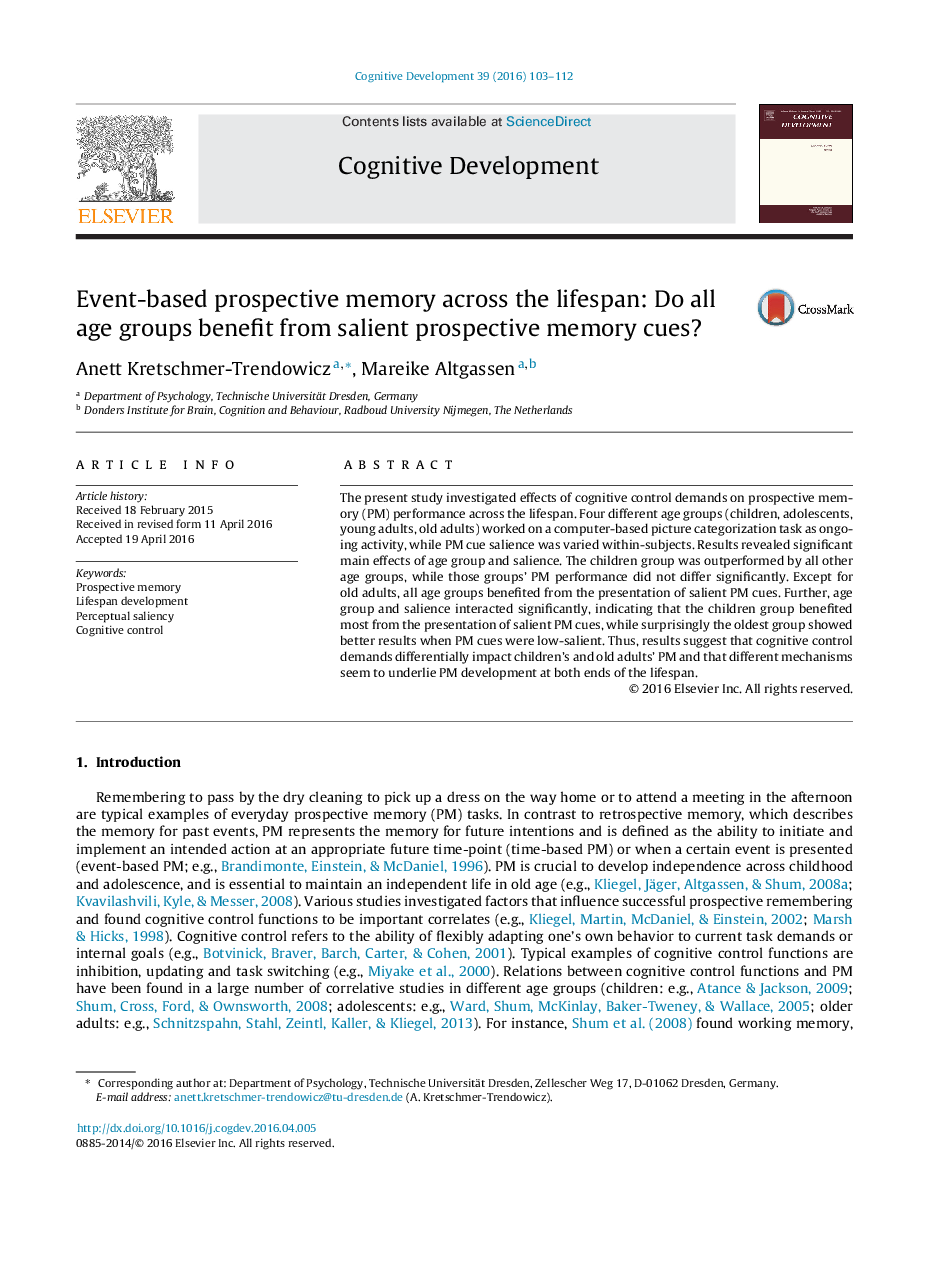| Article ID | Journal | Published Year | Pages | File Type |
|---|---|---|---|---|
| 7272428 | Cognitive Development | 2016 | 10 Pages |
Abstract
The present study investigated effects of cognitive control demands on prospective memory (PM) performance across the lifespan. Four different age groups (children, adolescents, young adults, old adults) worked on a computer-based picture categorization task as ongoing activity, while PM cue salience was varied within-subjects. Results revealed significant main effects of age group and salience. The children group was outperformed by all other age groups, while those groups' PM performance did not differ significantly. Except for old adults, all age groups benefited from the presentation of salient PM cues. Further, age group and salience interacted significantly, indicating that the children group benefited most from the presentation of salient PM cues, while surprisingly the oldest group showed better results when PM cues were low-salient. Thus, results suggest that cognitive control demands differentially impact children's and old adults' PM and that different mechanisms seem to underlie PM development at both ends of the lifespan.
Related Topics
Social Sciences and Humanities
Psychology
Developmental and Educational Psychology
Authors
Anett Kretschmer-Trendowicz, Mareike Altgassen,
